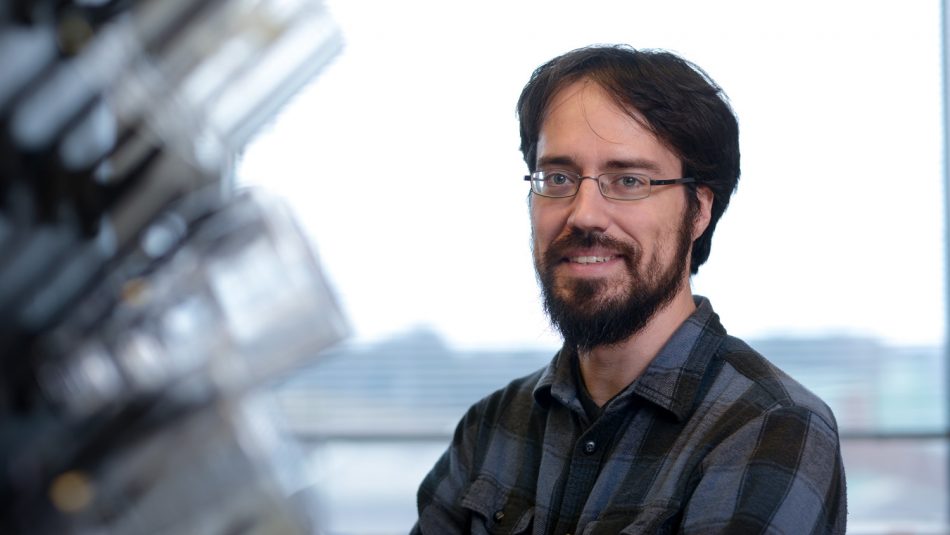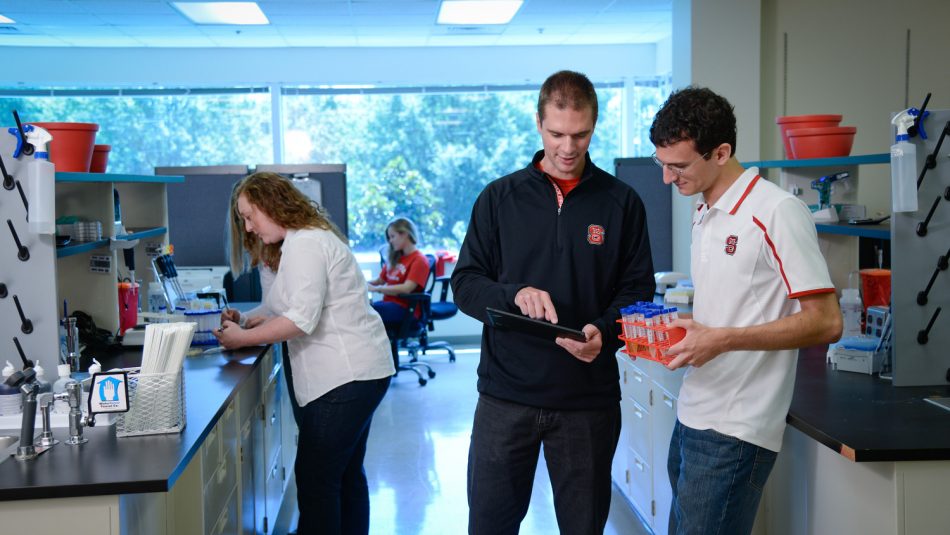Microbiomes and Complex Microbial Communities Benjamin Callahan
Associate Professor, Population Health and Pathobiology
Benjamin Callahan joined NC State in January 2017 as a Chancellor’s Faculty Excellence Program cluster hire in Microbiomes and Complex Microbial Communities. He is an associate professor in the Department of Population Health and Pathobiology and a member of the Bioinformatics Research Center. Callahan studies microbiomes — the complex microbial communities which inhabit and interact with almost every part of the world around us. He has developed new computational methods to more accurately, precisely and reproducibly characterize complex microbial communities, especially with the use of metagenomic sequencing methods. Callahan uses these new methods to study the microbial contribution to a variety of important problems including the pathophysiology of preterm birth, the development of antimicrobial resistance after antibiotic administration, and the prevalence and epidemiology of C. difficile. He is also generally interested in adaptation within microbial populations, which he has studied with a mix of analytics, simulation and experimental evolution.
Callahan obtained his bachelor’s degree in physics and mathematics from Iowa State University. He began to work on quantitative biology while obtaining a Ph.D. in physics from the University of California, Santa Barbara under the mentorship of Boris Shraiman. After graduation, Callahan completed two postdoctoral positions at Stanford University, the first with Daniel Fisher in applied physics, which focused on adaptive evolution, and the second with Susan Holmes in statistics, which focused on quantitative analysis of the microbiome.

